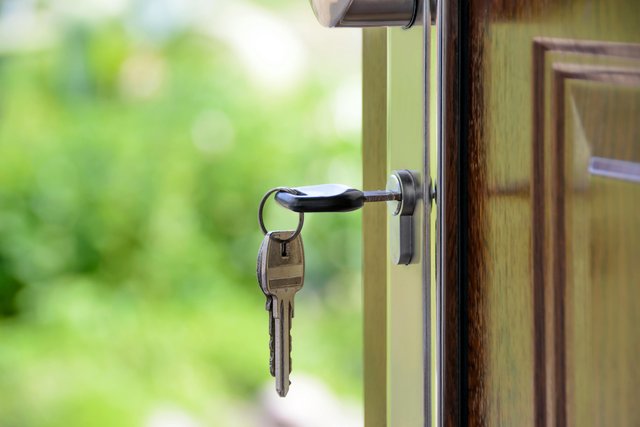10 Questions Every First-Time Homebuyer Should Ask Before Making an Offer
Buying your first home is a major life milestone—one that involves financial planning, legal understanding, emotional investment, and long-term thinking. For first-time homebuyers, the process can be as daunting as it is exciting. With so many moving parts, it’s easy to overlook essential details that could affect your investment and peace of mind for years to come.
Before you make an offer, it’s critical to ask the right questions. These queries will help you assess the property, understand the broader financial picture, and prepare for a smoother transaction. Whether you’re a small business owner looking to invest in a live/work space or a homeowner entering the market for the first time, this guide provides a comprehensive checklist of questions to ask before sealing the deal.
- Why is the homeowner selling the property?
Understanding the seller’s motivation can provide insights into how flexible they might be on price or terms.
Are they relocating for work?
Downsizing?
Facing financial hardship?
A seller eager to move quickly may be more open to negotiations, while one holding out for a specific price might be less flexible.
- How long has the property been on the market?
Homes that linger on the market may signal pricing issues or hidden flaws.
A house listed for several months could be overpriced or located in a declining neighborhood.
On the flip side, if it’s a recent listing, expect competition and potentially a bidding war.
Ask your agent to research price drops, previous listings, and days on market (DOM) trends for the area.
- What is included in the sale?
Not everything you see during a tour necessarily comes with the home.
Appliances (refrigerator, washer/dryer)
Fixtures (light fittings, curtain rods)
Outdoor features (sheds, swing sets)
Make sure all included items are written into the purchase agreement to avoid surprises.
- Are there any known issues with the home?
Sellers are typically required to disclose material defects, but that doesn’t always mean they’ll volunteer everything.
Has the property experienced flooding, mold, or termite infestations?
Are there plumbing or electrical concerns?
Always follow up disclosures with a professional home inspection for verification.
- What are the average utility costs and property taxes?
Monthly mortgage payments are just part of your financial commitment.
Request 12-month averages for water, electricity, and gas bills.
Check annual property tax history and note trends or reassessment risks.
For condos or HOAs, understand additional monthly dues and what they cover.
These costs can vary widely depending on location, age of the home, and usage.
- What is the neighborhood like?
Location is just as important as the home itself. You’ll want to know:
What are the local schools, crime rates, and amenities like?
Are there parks, grocery stores, or public transit nearby?
Is the area experiencing growth or decline?
Visit at different times of day and talk to neighbors to get an authentic sense of the community.
- How old are major systems and appliances?
Older infrastructure can lead to immediate post-purchase expenses.
Roof: Typically lasts 20-30 years
HVAC system: 10-15 years
Water heater: 8-12 years
Electrical and plumbing: Varies widely
Request maintenance records and ask if warranties are transferable.
- Has the home undergone any major renovations or repairs?
Renovations can increase value, but only if they were properly permitted and professionally executed.
Were changes done with city permits?
Were licensed contractors used?
Are there warranties for recent work?
Unpermitted additions or DIY projects could create issues with insurance, taxes, and resale.
- Is the home in a flood zone, earthquake zone, or other risk area?
Location-related risks can significantly impact insurance rates and long-term costs.
Check FEMA flood zone maps and local seismic activity
Inquire about past insurance claims and current coverage requirements
Understand if additional hazard insurance is needed
- What’s the seller’s timeline, and how does it align with yours?
Knowing when the seller plans to vacate can influence closing timelines and occupancy planning.
Do they need a lease-back agreement?
Are they contingent on buying another property?
Aligning timelines avoids conflict and can make your offer more attractive if you're flexible.
Bonus Tips for First-Time Buyers
Get Pre-Approved
Having a pre-approval letter shows sellers you’re serious and financially capable.
Work With a Local Real Estate Agent
Choose someone familiar with the neighborhood and local regulations.
Don’t Skip the Inspection
A thorough inspection is worth every penny and can save you from buying a "money pit."
Plan for Closing Costs
These can add 2% to 5% of the home's price and include taxes, lender fees, and title insurance.
Think Long-Term
Don’t just buy for today. Think about resale value, future needs, and potential property appreciation.
Final Thoughts
Buying your first home is a complex process that benefits greatly from preparation and knowledge. Asking the right questions before making an offer not only helps you avoid costly surprises but also empowers you to negotiate better terms and feel confident about your investment.
From understanding why a seller is moving to evaluating the true cost of ownership, these questions give you a solid foundation. Pair this insight with a trusted real estate agent, and you’ll be well on your way to owning a home that aligns with your goals, lifestyle, and financial future.
Stay curious, ask questions, and make your first home purchase a smart one.
